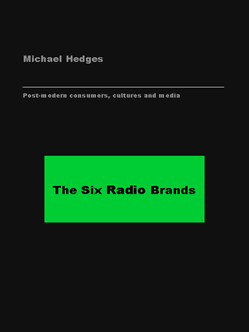ftm Radio Page - April 23, 2010
More Good News For Broadcasters, Some At Least…
 National stations and local stations are different. Big city stations are different, too. Within it all, audiences are increasing. Broadcasters are finding opportunity as the folks continue to spin that dial.
National stations and local stations are different. Big city stations are different, too. Within it all, audiences are increasing. Broadcasters are finding opportunity as the folks continue to spin that dial.
Measurement Goes Mobile
 The ubiquity of the mobile phone has become a basic building block of the media world. Only cave-dwellers question the power of this device, loved by consumers, to deliver a different business model. The measurement people know this.
The ubiquity of the mobile phone has become a basic building block of the media world. Only cave-dwellers question the power of this device, loved by consumers, to deliver a different business model. The measurement people know this.
News and Talk Raises Radio Listening
 Radio talk shows continue to push the right buttons, on the radio dial that is. Show hosts are big brands and when channels make changes entire markets shift. And more people tune in.
Radio talk shows continue to push the right buttons, on the radio dial that is. Show hosts are big brands and when channels make changes entire markets shift. And more people tune in.
End of winter for Dutch radio
Public radio gains
February-March Dutch radio audience figures released by Intomart GfK (April 22) give public channels, mostly, a boost. Radio 5 (easy listening), Radio 6 (jazz and alternative music), Radio 3FM (pop music), Radio 1 (news) and Radio 4 (classical music) all gained market share, year on year. Radio 2 (oldies) didn’t.
Radio 3FM moved up to 3rd spot with 9.0% market share (persons 10+) from 7.9% one year on. (See more on Dutch radio here)
On the commercial side, Radio Veronica and 100%NL gained a bit. Others, largely, were off. (JMH)
War on music radio
No jingles, either
Somalia is a country in misery. Warring Islamic forces ordered radio stations to stop playing music. Un-Islamic, they said, channeling the Taliban.
The government, such as it is, told stations they’d lose their licenses for paying attention to the Hizbul Islam rebels. Confusion being the daily fabric of Somali life, stations that stopped playing music were ordered closed then ordered back on the air.
"The Somali government is not happy with the oppression of the media and will always work toward creating an enabling environment where it can operate freely," said Information Minister Dahir Mohamud Gelle, quoted by AP (April 20). "I inform the radio stations closed today they can resume their operations." (More on Somali media strugggles here)
Without a functioning government for nearly two decades, citizens overwhelmingly use radio for information and a brief respite from the despair. (JMH)
Radio Page - April 16, 2010
Radio Page - April 9, 2010
Radio Page - April 2, 2010
Radio Page - March 26, 2010
Radio Page - March 19, 2010
Recently added radio audience figures
- France - Paris Radio Audience (23/04/2010)
national and local channels, market share - Spain - National Radio Audience (16/04/2010)
national channels, reach share, trend - France - National Radio Audience (15/04/2010)
national channels, sectors, market share, reach/TSL - Germany - Radio Audience (14/03/2010)
leading stations, 2010 national survey, daily reach - Czech Republic - Radio Audience (01/03/2010)
Top stations, national survey, trend - Netherlands - Radio Audience (20/02/2010)
national survey, market share, trend - Romania - National Radio Audience (11/02/2010)
national survey, market share, trend
More Resources
Also see ftm Knowledge
Europe’s Radio – Eastern Europe – new
Eastern Europe’s radio writes new rules. In fact, most everything about radio in this region is new... and changes often. The ftm Knowledge file reports on Belarus, Bulgaria, Czech Republic, Hungary, Moldova, Poland, Ukraine, Romania, Russia and Slovakia. 65 pages PDF (February 2010)
ftm Members order here
Available at no charge to ftm Members, others from €49
Order
Europe’s Radio – Northern Europe
Northern Europe’s radio has a very digital sound. And change is in the air. Economic challenges abound for both public and commercial broadcasters. The ftm Knowledge file reports on Denmark, Estonia, Finland, Iceland, Ireland, Latvia, Lithuania, Norway, Sweden and the UK. 72 pages PDF (December 2009)
ftm Members order here
Available at no charge to ftm Members, others from €49
Order
Digital Radio - Forward...slightly
Digital radio is slowly finding its way. Broadcasters are challenged by shifts in business models, audience expectations and regulation limbo. This ftm Knowledge file details the promise of digital broadcasting and the paradigm shifts. 83 pages PDF (June 2009)
ftm Members order here
Available at no charge to ftm Members, others from €49
Order

The Six Radio Brands is about the uniquely European development of radio brands. Competition among broadcasters - and certainly between the public and commercial sectors - gives radio in Europe a rich dynamic. As consumers become more media-literate and demand more attachment broadcasters find target markets illusive. 100 pages. 2004 Available at no charge to ftm Members, €49 for others. Email for more information |